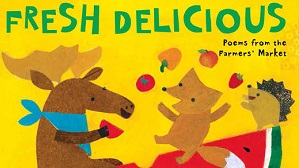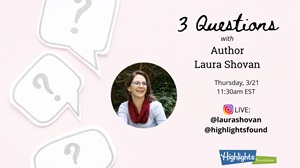A Poem’s Object is to Explode the Moment
When I think about what I want to achieve in a poem, many things come to mind: emotions, imagery, wordplay, surprise! But mostly, I think, my goal—a poem’s object—is to explode the moment, to burst:
Into the solemn church, and scatter the congregation;”
—from “Beat! Beat! Drums!” by Walt Whitman
A poem should disturb the universe, stun us awake, disrupt our lives and our ways of thinking. Emily Dickinson put it like this: “If I feel physically as if the top of my head were taken off, I know that is poetry.”
But this kind of poetry doesn’t just happen; it’s earned through imagination and hard work and showing up at the page. For me, it mostly happens during revision.
I love revising poetry. I love helping others revise poetry. Which is why Charles Waters and I will be talking a lot about this in our upcoming workshop Poetry for Kids: A World of Publishing Possibilities.
Revision Can Take a Good Poem and Make it a Great Poem
Whatever kind of poetry you’re writing—lyrical picture books! verse novels! nature-based collections!—revision is where we learn to take a good poem and make it a great poem.
As Maya Angelou reminds us: “We delight in the beauty of the butterfly, but rarely admit the changes it has gone through to achieve that beauty.”
To get you moving toward beauty—and “bursting”—here’s a list of 20 questions to ask yourself and your poem:
- Does your title attract the reader’s attention?
- Does your title add something to the poem?
- Does the way you have organized the poem “match” the content of the poem?
- Do the stanzas serve a purpose for the reader?
- How strong are your line breaks? (In my experience, the most important point is the end of the line. The second most important point is the beginning of the line.)
- Do you use fresh imagery/language (and avoid clichés)?
- Do you engage more than one of the five senses?
- Is your subject original? (Or, if your subject is common, is your take on it original?)
- Does the poem elicit emotion?
- Do you use language that “matches” the subject of the poem?
- Do you use language that is musical and/or has rhythm?
- Do you use strong verbs?
- Have you cut unnecessary words?
- Does the poem contain more than one level of meaning?
- If you employ the use of metaphor or similes, do these devices hold up?
- Do you surprise the reader?
- Does the poem achieve what it sets out to accomplish?
- Is there another poem hiding inside this poem?
- Does this poem lead to another poem?
- Am I having fun?
Yes, revision is meant to be FUN!







